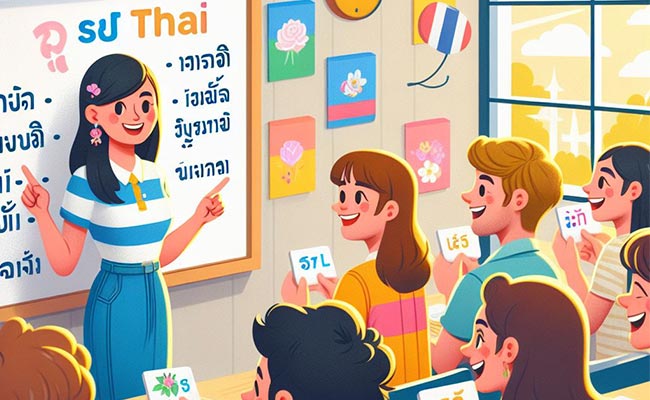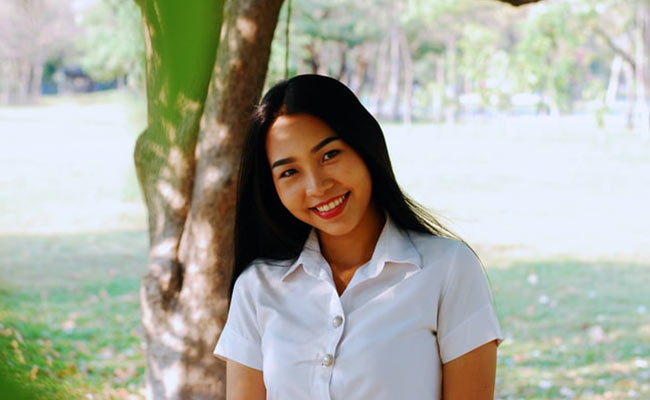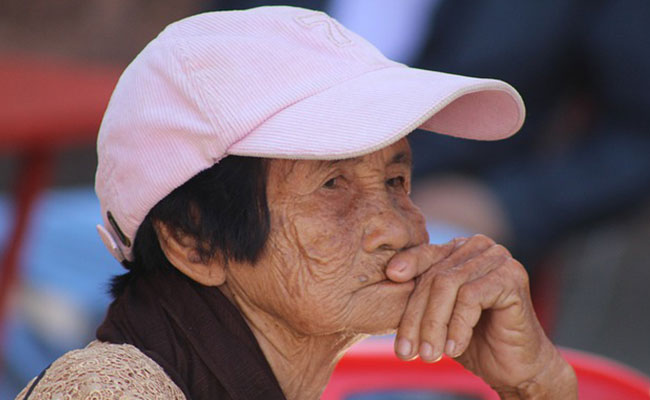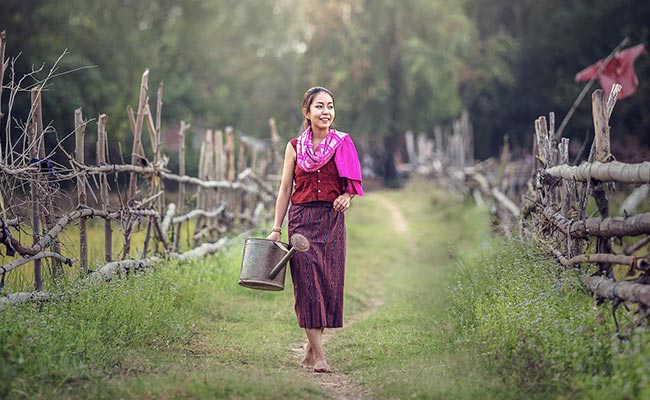In Thai culture, being polite and expressing gratitude are essential aspects of social interaction. By learning polite phrases, you not only show respect for Thai customs but also develop deeper connections with the people you encounter.
So, whether you're sightseeing in Bangkok, propping up a barstool in Pattaya, or chilling in Isaan, use please and thank you to encourage positive interactions with the locals.

Saying “Please” in Thai
There are actually three ways of saying “please”, depending on the use case.
1. ขอ (Khǎaw)
The most common way to say “please” is by using the word “ขอ” (khǎaw) before the verb. This is more casual than the two forms below but still polite enough for everyday conversation. For example, “ขอโทษ” (khǎaw thot) means “Please excuse me.”
Translated to English, the word sounds more like “cor”.
2. กรุณา (Ga-ru-naa)
This more formal expression of the word please is often used in polite requests, such as asking for assistance or making a formal inquiry. For instance, “กรุณาช่วยด้วย” (Ga-ru-naa chuay duay) means “Please help.”
3. โปรด (Pròht / Bpròht)
“โปรด” (Proht) carries a formal tone and is employed in formal written language or announcements. It conveys a sense of respectful request.
For example: “โปรดช่วยกันรักษาความสะอาด” (bpròht chûuay gan rák-săa kwaam sà-àat) — Please keep the area clean.
Saying “Thank You”
1. ขอบคุณ (Khàawp khun)
This is the most common way to express gratitude in Thai. Whether receiving a gift, a compliment, or assistance, “ขอบคุณ” (khàawp khun) is the go-to phrase. It's suitable for both formal and informal situations.
2. ขอบคุณมาก (Khàawp khun mâak)
To convey deeper appreciation, you can add “มาก” (mâak) which means “very” or “a lot” after “ขอบคุณ” (khàawp khun). This emphasizes the extent of your gratitude, making it more heartfelt. You can even opt for a double “mâak” for deeper appreciation (mâak mâak).
3. ขอบคุณจริงๆ (Khàawp khun jing jing)
For an even stronger expression of gratitude, you can say “ขอบคุณจริงๆ” (khàawp khun jing jing), which translates to “thank you sincerely” or “thank you very much indeed.” This is particularly appropriate for situations where someone has gone above and beyond to help you, you have already said thank you, but want to stress that you are grateful beyond words.
4. ขอบคุณที่ช่วยเหลือ (Khàawp khun tii chuay leua)
When thanking someone for their assistance, you can specifically mention what they helped you with by saying “ขอบคุณที่ช่วยเหลือ” (khàawp khun tii chuay leua), which means “thank you for your help.”
Adding Essential Politeness to Your Sentence
You should use these politeness particles at the end of every sentence you say.
1. “ครับ” (Khráp)
Usage: “ครับ” (khráp.) is typically used by male speakers to indicate politeness and respect. It's not commonly used by female speakers unless they are intentionally trying to mimic male speech patterns for specific contexts. This word quite often sounds like “cup”.
Examples:
- “ขอบคุณครับ” (khàawp khun khráp.) – Thank you (said by a male speaker)
- “ใช่ครับ ขอ” (Chai khráp, khǎaw) – Yes, please.
2. “ค่ะ” (Khâ)
Usage: “ค่ะ” (khâ) is primarily used by female speakers to express politeness and respect. Male speakers do not typically use “ค่ะ” (ka), unless a man has purposefully adopted a feminine tone.
Examples:
- “ขอบคุณค่ะ” (khàawp khun khâ) – Thank you (said by a female speaker).
- “ใช่ค่ะ ขอ” (Chai khâ, khǎaw) – Yes, please.
Learning Thai makes life easier, and way more fun. I use Thaipod101. Get a free account by clicking here. It is really easy to use. If you are sending money to your loved one, or your own Thai bank account, try Wise here. It is fast and cheap. Me and the majority of my readers are using it. Start with a quick quote here from Cigna. Then you can compare it to other companies.More Tips for a Better Life in Thailand
Improve Your Thai Skills:
Send Money to Thailand:
Get Good Health Insurance:
Last Updated on



Leave a Reply